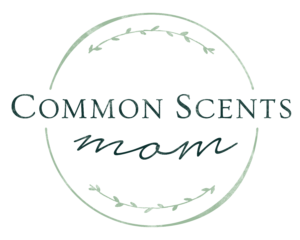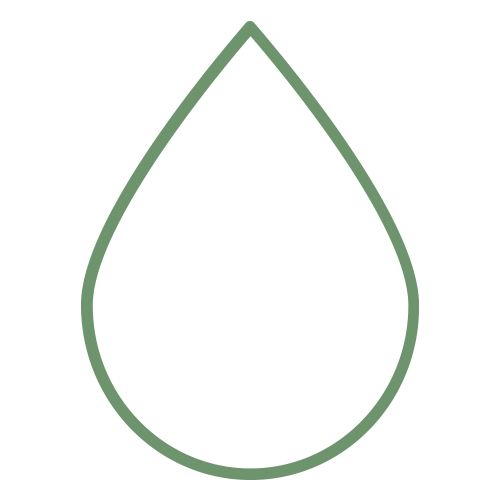Sometimes it may seem overwhelming. We are bombarded daily with chemicals that pose health risks to us and our families—in our foods, in our cleaning products, in skin care products, even in the air we breathe. What are they trying to do—poison us? No. They’ve just been giving us what we want. If we didn’t buy it, they wouldn’t sell it.
In fact, maybe I’m being too optimistic, but I’m beginning to see small glimmers of hope here and there. As I’ve noticed an increased availability of organic foods and natural cleaning products; healthier foods being integrated into the regular shelves at the grocery store; and even dye-free Icees at the movie theater, I have to wonder whether or not some companies are finally beginning to “get it!”
I almost fell over recently when I saw a bottle of a popular brand of ketchup that advertised right on its label, “No High Fructose Corn Syrup”!
But, we have a long way to go. If you’re like me, for too long, you’ve “hoped” that the mystery ingredients on the labels of most of your foods, cleaners, and skin care products were safe. You’ve ignored articles and reports that warned you about what’s in your favorite fast foods and think to yourself, “Maybe if I close my eyes it won’t hurt me.”
But, as Christians, we know better than to think this way. And we need to pay attention! Take some time to look up ingredients and find out what legitimate studies have been done on them. While some chemicals may be harmless, others may be slow-acting poisons. Here are just a few common red flag ingredients (there are many more!):
- DEA (Diethanolamine) – Found in more than 600 home and personal care products, such as shampoos, conditioners, bubble baths, lotions, cosmetics, soaps, laundry, and dishwashing detergents. Suspected of carcinogenic activity (causing or contributing to cancer) or of being potentially dangerous or hazardous to your health.
- Propylene Glycol – The main ingredient found in anti-freeze; also common in shampoos, deodorants, cosmetics, lotions, toothpastes, processed foods, baby wipes, and many more personal care items. Implicated in contact dermatitis, kidney damage, and liver abnormalities; can inhibit skin cell growth in human tests and can damage cell membranes causing rashes, dry skin, and surface damage.
- Sodium Lauryl Sulfate (SLS) – Industrial uses include concrete floor cleaners, engine degreasers, and car wash detergents. Also found in shampoos, liquid soaps, conditioners, cleansers, and children’s bubble baths. SLS is found in nearly all toothpastes (it is what causes your toothpaste to foam see here), and is absorbed through skin contact and retained for up to five days. Click HERE to read more.
- Talc—Chemically similar to asbestos, talc has been linked to ovarian cancer. It’s found in many body and baby powders, as well as many cosmetics. Try making your own Dusting Powder instead!
Alternatives
Do perfumed cleaners, soaps, and harsh chemicals ever give you a headache or irritate your skin? Some people tend to be more sensitive than others, but we are all affected to some degree by what we put on our skin and inhale into our bodies.
It may not be possible or cost effective to avoid all of these chemicals in your cleaning and personal care products, but make it your goal to at least reduce your family’s exposure to them.
I have found using therapeutic-grade essential oils to be a safe, effective alternative to many store-bought cleaning and skin care products—and I love the way they smell! Personally, I have found that our Thieves Household Cleaner works for nearly ALL of my household cleaning needs, but here are a variety of natural alternatives…
Essential Oils Suggested for Cleaning:
Singles: Cinnamon, Orange, Clove, Eucalyptus, Thyme, Spruce, Lemon, Lemongrass, Grapefruit
Blends: Thieves, Purification, Citrus Fresh
Making your own household cleaners and air fresheners is easy! Check out the following simple recipes…
All Purpose Household Cleaner:
(Great for counters, floors, windows, tabletops, refrigerator, tubs, sinks…etc.)
- 1 oz. Thieves Household Cleaner (THC)
- 32 oz. water
- spray bottle
Put water into spray bottle and add THC. This spray can be used to clean surfaces in the kitchen and bathroom. I leave a small squirt bottle in each bathroom for easy freshening.
Floor Cleaner:
Add 1/4 cup white vinegar to a bucket of water. Add 10-15 drops lemon, pine, spruce, Thieves, or Purification.
or
1 oz. Thieves Household Cleaner to a bucket or warm water (inexpensive and smells way better than vinegar!)
Air Freshener
Mix essential oils with the grain alcohol first and then add the purified water. This can also be used as a “pillow spray” for freshening linens, lockers, or laundry baskets:
- 2 T. vodka
- 1/2 C. purified water
- 15-20 drops of one or more of the following essential oils:
- Harmony
- Peace and Calming
- Sacred Mountain
- Lavender
- Lemon
- Thieves
- Purification
- Citrus Fresh
Tip: Leave a bottle in each room for easy freshening.
Window cleaner
Vinegar and Oil Version:
- 1 quart spray bottle
- 1 C. White Vinegar
- 10-15 drops of Lemon, Orange, Tangerine, Geranium, Lavender (or your favorite) Essential Oil
- 1 C. water
Add vinegar and water to the spray bottle. Add essential oils, shake, and use.
Natural cleaners like these are great for little housewives in training. No need to worry about breathing fumes, or harsh chemicals touching their little hands!
Best Choice:
Thieves Household Cleaner Version (winds up costing around $1 a bottle):
- 1 oz. Thieves Household Cleaner
- 32-64 oz. water
In the Dryer:
-
-
- Instead of using dryer sheets, add 5-10 drops of lavender, lemon, bergamot, sandalwood, geranium, or other YL essential oil to a dampened washcloth or wool dryer ball and toss into the dryer.
-
Shopping List
-
-
- Water bottles (different sizes)
- Wool Dryer Balls
- High Proof Grain Alcohol (Vodka)
- Lavender essential oil
- Lemon essential oil
- Clove essential oil
- Rosemary essential oil
- Orange essential oil
- Pine essential oil
- Eucalyptus essential oil
- Cinnamon essential oil
- Thieves® essential oil blend
- Purification™ essential oil blend
- Citrus Fresh essential oil blend
- Thyme essential oil
- Thieves Household Cleaner
- Thieves Laundry Soap
- Thieves Dish Soap
- Thieves Automatic Dishwasher Powder
- Thieves Fruit and Veggie Wash
- Thieves Home Cleaning Kit
- White Vinegar
-
So, now you know! Making your own cleaning products is easy and extremely cost efficient! Most of the recipes above use water or other inexpensive kitchen ingredients mixed with the essential oils. A 15ml bottle of Young Living essential oils contains about 250 drops of essential oil which means you can make your own natural cleaning products for a fraction of what it would cost in the stores.






This Post Has One Comment
Great article once again. Thanks a lot:)
Comments are closed.